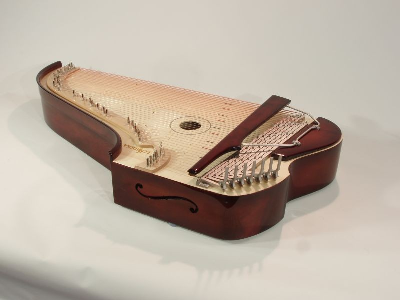
© Фото з відкритих джерел
До Литви повернувся унікальний музичний артефакт — старовинні кантеле (kanklės), що понад століття зберігалися у Фінській літературній спілці (SKS). Урочиста передача інструмента відбулася в Гельсінкі за участі президента Литви. Інструмент привіз до Фінляндії ще 1910 року фінський фольклорист Аугусті Роберт Ніємі під час своїх експедицій у Литву. Разом із кантеле він зібрав величезний архів матеріалів — серед них 86 фонографічних воскових циліндрів із першими записами литовських багатоголосих пісень сутартінес, нині внесених до списку нематеріальної культурної спадщини ЮНЕСКО. Тепер кантеле стане частиною фондів Інституту литовської літератури та фольклору у Вільнюсі. Установа готує масштабну цифрову публікацію матеріалів Ніємі, що зробить записи та документи доступними онлайн для дослідників і широкої публіки. У SKS також наголосили, що раді повернути інструмент, який зберігався в їхніх архівах понад сто років. За словами представників організації, ця подія підкреслює спільну культурну місію двох народів і відкриває нові можливості для міжнародних досліджень.
Finland returns historic kantele to Lithuania
A unique musical artifact has returned to Lithuania — an antique kantele (kanklės) that had been preserved for more than a century by the Finnish Literature Society (SKS). The ceremonial handover took place in Helsinki with the participation of the President of Lithuania. The instrument was originally brought to Finland in 1910 by Finnish folklorist Aukusti Robert Niemi during his expeditions to Lithuania. Alongside the kantele, Niemi collected a vast archive of materials, including 86 phonograph wax cylinders with the first recordings of Lithuanian multipart songs, sutartinės, now inscribed on UNESCO’s Representative List of the Intangible Cultural Heritage of Humanity. The kantele will now become part of the collections of the Institute of Lithuanian Literature and Folklore in Vilnius. The institute is preparing a major digital publication of Niemi’s materials, which will make the recordings and documents available online to researchers and the wider public. SKS representatives emphasized their delight in returning an instrument that had been in their archives for over a hundred years. They noted that the event highlights the shared cultural mission of the two nations and opens new opportunities for international research.
1543